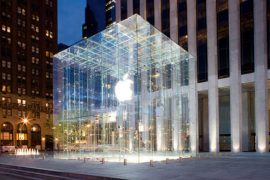Facing sluggish sales at home, UK-based luxury brand Burberry is investing heavily in Chinese market growth. The well-known luxury company reported record retail sales in several East Asian markets, including the rapidly expanding Chinese luxury goods market.
Luxury brands face slow growth – and in some cases, declining sales – in many of the Western countries, largely due to economic recession and limited demand for high-end products. As such, many brands have focused their efforts on East Asian expansion, particularly in high-growth markets such as China, Korea, and Taiwan.
With cultures that value luxury items as an indicator of status, European luxury brands are enjoying fantastic results in many East Asian countries. Burberry has expanded rapidly in China to face growing demand for high-end products fuelled by the country’s rapid economic growth and emerging middle class.
A key East Asian market for Burberry is Hong Kong, which accounts for a large portion of the company’s 35 percent Asia-Pacific sales. The company reported profits before tax of £428 million up until the end of March, indicating strong growth in East Asian markets.
Burberry’s other major target is Latin America, where the brand has enjoyed a period of steady growth throughout the last decade. At the same time, Burberry expects to scale back its North American operations by ten percent this year as wholesale accounts, which make up most of its business, continue to decline.
Of Burberry’s ten upcoming stores, three will be in China (all in Shanghai) with another three based in Brazil. The brand also plans to open stores in Colombia, Barbados, and Chile under a franchise agreement aimed to bolster sales in the rapidly expanding South American markets.
While Burberry’s slow sales in Western markets may be a sign of the economic times, it’s quite unique in its East Asian sales growth. Market leader LVMH, the company behind brands such as Louis Vuitton and Moët & Chandon, has seen its East Asian sales slow over the past year.




